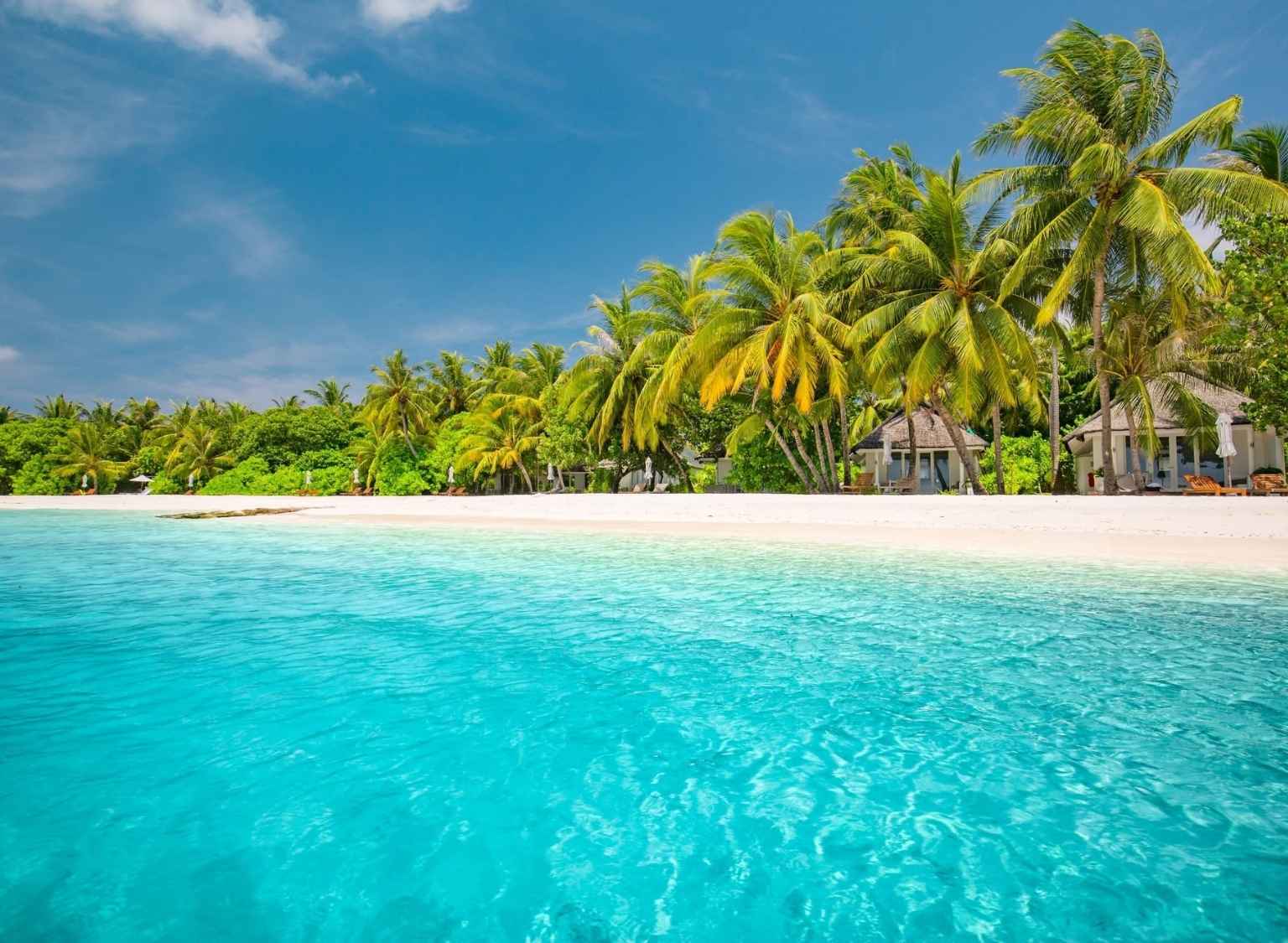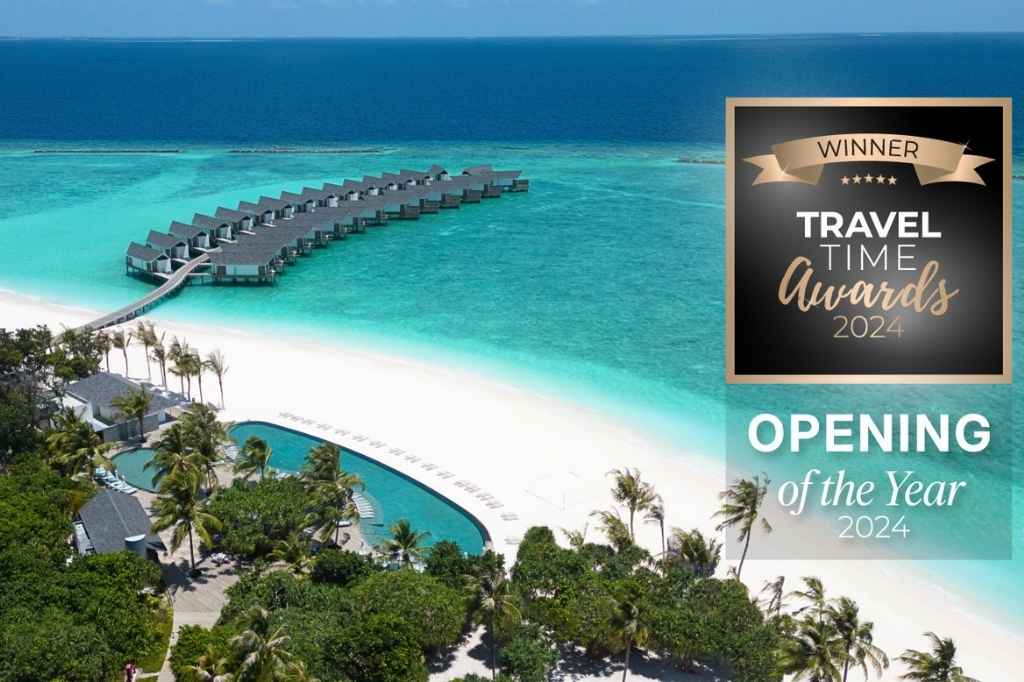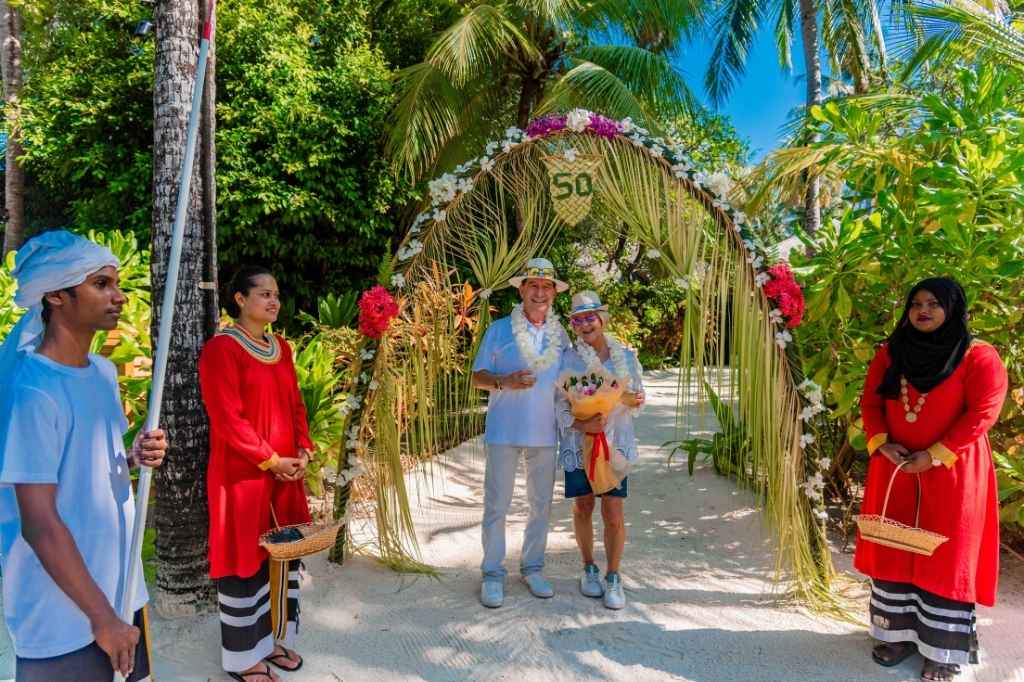As the world grapples with the far-reaching consequences of climate change, the Maldives stands at a crossroads. This breathtaking paradise, known for its pristine white-sand beaches and crystal-clear waters, faces severe vulnerability to the devastating impacts of global warming. In light of this, what does this mean for the country’s tourism industry, which drives over 30% of the GDP and accounts for more than 80% of foreign exchange earnings? The answer is complex, but one thing is clear: the Maldives is pioneering a future where tourism and climate resilience can go hand-in-hand.
Climate Change: A Looming Threat to Tourism
The Maldives faces unique vulnerabilities to climate change, with rising sea levels, coral bleaching, and extreme weather events threatening its ecosystems and tourism infrastructure. As a result, the government is taking urgent action to safeguard the nation’s future.
President Dr. Mohamed Muizzu emphasized on the International Day of Clean Energy in January 2025, “Clean energy is instrumental to protecting our nation and the planet,” highlighting the need for sustainable energy solutions. The country is committed to generating 33% of its electricity from renewable sources by 2028.
Furthermore, the Maldives unveiled its Third National Climate Action Plan in 2025, crafted through extensive consultations with key stakeholders. This plan aims not only to reduce greenhouse gas emissions but also to build resilience against climate impacts and promote sustainable development.
Minister Thoriq Ibrahim stated, “Although our contribution to the global greenhouse gas emissions is just 0.004%, we are fully committed to being part of the solution.” Despite contributing minimally to global emissions, the Maldives recognizes the urgency of addressing climate change.
In addition, as part of its commitment to global climate action, the Maldives continues to play an active role in international climate efforts. At the 2024 COP28 summit, President Dr. Muizzu pledged to accelerate the country’s transition to renewable energy. Moreover, the government is forging key international partnerships with organizations like USAID and the UN to strengthen its climate resilience and tackle global challenges together.
Sustainable Tourism: A Path Forward
Tourism remains the backbone of the Maldivian economy, yet the very natural wonders that attract millions of visitors each year are at risk. To address this, the Ministry of Tourism’s 2024 Climate Action Plan sets out a vision to make the Maldives a global leader in climate adaptation for Small Island Developing States (SIDS). This ambitious vision focuses on diversifying the tourism economy, regenerating ecosystems, and integrating community needs while preserving the islands’ unique environment. The Maldives plans to achieve long-term economic growth by harnessing tourism’s power to drive positive change, all while reducing its carbon footprint.
The rise of eco-friendly resorts exemplifies how the Maldives is transforming its tourism industry to be more sustainable. Resorts brands like Villa Resorts and the Ozen Collection lead the way with innovative use of renewable energy, water conservation practices, and commitment to reducing single-use plastics. For instance, Villa Resorts has partnered with Parley for the Oceans to combat plastic pollution, while OZEN LIFE MAADHOO is committed to recycling 75% of its waste and utilizing solar energy. These initiatives not only reduce the resorts’ environmental footprint but also educate visitors about the importance of conservation.
The Maldives is prioritizing sustainable infrastructure through its ‘one-island-one-resort’ model, which prevents overdevelopment and ensures controlled tourism that doesn’t harm local ecosystems. Visitors can participate in eco-friendly activities like eco-tours, diving, and snorkeling, all while promoting environmental conservation. Beyond protecting the islands from climate risks, the Maldives is using tourism as a platform for broader environmental conservation, integrating initiatives like marine protected areas, coral restoration, and sustainable waste management into its tourism offerings.
As the former Tourism Minister emphasized in the Maldives Tourism Climate Action Plan 2024,
“Tourism has the potential to be both a contributor to climate change and a solution. Decisive action now can create a future where tourism thrives while protecting the natural and cultural assets.”
The Future of Maldivian Tourism in a Warming World
As climate change threatens the Maldives, the country’s tourism sector must adapt to new environmental realities. To navigate these challenges, experts and policymakers are collaborating to ensure sustainable tourism while minimizing environmental impact. By 2030, the Maldives envisions a more resilient tourism industry, focusing on regenerating ecosystems, involving local communities in climate adaptation, and diversifying business models to reduce environmental harm. The country’s success in leading other small island developing states (SIDS) in sustainable tourism will depend on its continued climate commitments and innovation.
This focus on climate resilience aligns with the broader goals of the UN’s “Blue Economy” model, which emphasizes the sustainable use of ocean resources. The Maldives has already become a model for eco-friendly tourism, with its ocean ecosystem playing a central role in its luxury tourism industry. A UNDP report on the Blue Economy highlights, “The Maldives’ ocean ecosystem has propelled the country into a top luxury tourism hotspot, with one of the highest blue economy ratios worldwide.” For small island nations, this model demonstrates that sustainable development and economic growth can coexist.
In response to the global climate crisis, the Maldives is entering a new era of eco-friendly travel. Community-led projects, such as sustainable fishing practices and waste management initiatives, redefine the tourism experience. These programs not only benefit local communities but also invite tourists to engage in environmental stewardship, fostering a deeper understanding of the balance between tourism and the environment.
A Sustainable Paradise in the Making
In 2022, H.E. Ms. Sabra Noordeen, Special Envoy for Climate Change, emphasized, “Nationally, I believe the Maldives must incorporate climate resilience into everything we do. Because resilience means self-sufficiency in a world that is increasingly uncertain.”
While the journey toward climate resilience in tourism presents challenges, the Maldives can significantly benefit from focusing on regenerating and protecting its environment. More than just a dream destination, the country is leading by example, showing how sustainability can thrive even in the face of climate change. By aligning climate policies, eco-tourism, and community efforts, the Maldives demonstrates that island nations can adapt and prosper in a warming world. As the tourism sector shifts from contributing to climate change to leading in eco-friendly practices, it opens up the opportunity to reshape the industry into one that is sustainable and in harmony with nature. Achieving this vision requires the collective efforts of the government, businesses, local communities, and international partners. Ensuring that the Maldives remains a paradise in the midst of the climate crisis.
Moreover, in its commitment to climate resilience, the Maldives government has strategically merged the Ministry of Climate Change, Environment, and Energy with the Ministry of Tourism to create the Ministry of Tourism and Environment. President Dr. Muizzu highlighted the importance of this integrated approach, stating, “Promoting the Maldives through a unified strategy highlights the strategic importance of our environmental heritage and its tourism sector.” This alignment marks a new era where environmental preservation and sustainable tourism go hand in hand, paving the way for a greener, more eco-friendly future.
Feature image via LUX* South Ari Atoll
LUX* South Ari Atoll is a resort committed to sustainability, featuring a large floating solar system, plastic-free initiatives, and coral restoration efforts.








